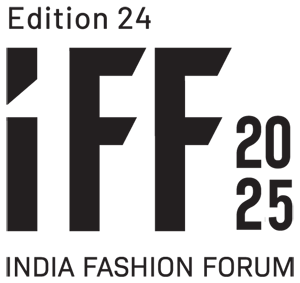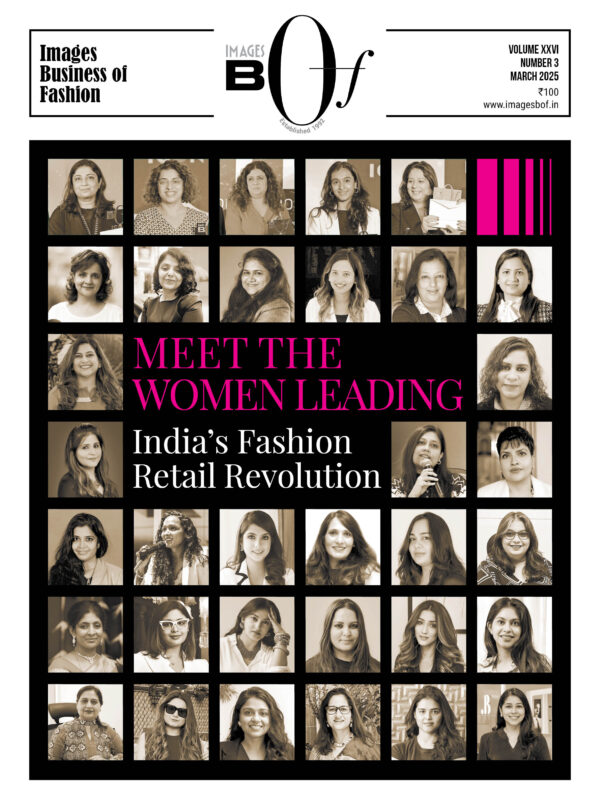In 2018, Uniqlo sent Tomohiko Sei to India to spearhead its entry into the country that Retailing Co. ranks as the biggest future market for the Japanese brand. Prior to his India assignment, Sei was then the COO for Fast Retailing in Singapore. Sei spoke to Group Managing Editor, IMAGES Group, Rasul Bailay about Uniqlo’s journey so far – its rollercoaster ride due to Covid-19 and about India as a potential market for Asia’s largest fashion brand. Excerpts from the exclusive chat…
Uniqlo had a rollercoaster ride in India with Covid and the subsequent recovery. How did things pan out in your three years journey here?
So, at first, there were so many challenges in the first three years but the outcome for us has been positive. We were able to finally make a profit. Even though half year is still left to cover but we made it. Then, business-wise, yes the pandemic did damage business plans for many businesses. Not ongoing but on a paradigm, we were able to focus more on the existing business – stores, members and production. And hence, we are now stronger in terms of our business.
We saw a significant number of consumers shifting online in the pandemic.
I believe shifting is not alone but it’s also the growth together. It depends on each company’s strategy – each brand’s character. But in our case, our concept is LifeWear. Which focuses on daily essentials. It is not like short-term wear or short-term fashion. So that’s why we need to present the real value of our product to the customers. So that touchpoint is important through retail stores. So for us, both retail and e-commerce remain our priority.
So you have worked in Uniqlo for two decades in various markets. Did India surprise you?
Every day! (laughs)
What are the biggest surprises?
So surprises, like many of my colleagues said India is a very unique country, India is a very special country. After I came in, I felt India is almost similar to many other global countries. Because our brand, Uniqlo as a brand is focused on daily essentials that is why the demand for essentials is common across the world. Many people mentioned that Indian people are very price conscious. But, in my heart, all countries are price conscious! But what is surprising is value for money is very strong than in other countries. Especially quality and functionality, I feel the Indian consumer has an eye for detailing such as fabric, etc.
Your decision to keep the pricing higher here in India.
Japan is a unique situation. Because the Japanese believe in Uniqlo for their daily essentials and we don’t change our prices very often. There are no middlemen and inflation is stable. So that’s why the prices in Japan are not as high as compared to the Indian market.
Your founder Mr. Tadashi Yanai believed India is the biggest future market for Uniqlo.
Yes, I believe India is still the biggest market – potential wise. If you see the screenshot (geographically), of course, China is still the biggest market.
So, India is the biggest market long term wise? In how many years? 10 years, 20 years?
It is very difficult to say. Because not only here but globally as well it’s very difficult to predict in how many years can a market be the priority. So I think the point is not the timing, it depends on the potential of the market and how much effort we make in terms of investment to make a market important. So, I believe India can definitely be a big market in the future.
H&M has been expanding fast here while Zara has been relatively measured in its approach. What expansion strategy would you adopt?
Our expansion strategy is not related to other players. We have our own strategy. Then, the brand character is different from each other. I believe, H&M is aggressive in its store expansion and Zara is more premium. Also, in our case, our brand philosophy is LifeWear, which is more daily essentials, focused on quality, components and eye for detailing. So that’s why our priority is to bring the right presentation of the brand. Yes, if we decide to open in other cities – we can do that aggressively but our priority remains quality – as to how much can we control operations in each market. This is important for us and we want to make that right.
Initially, you opened majority of your stores in the range of 20,000 sq. ft-35,000 sq. ft. But lately you have been rolling out stores in the range of 10,000-15,000 sq ft.
Initially, we had some criteria with respect to store format and sizes. Then, bigger is always better! But too small is not something that works for us. Currently, the smallest sized store for us is Connaught Place in New Delhi which is 8,000 sq ft. It is almost the lower limit of store sizing for us. In India’s case, our brand awareness is still very low and we understand that. And therefore, we wanted to open stores that can showcase our full lineup. That is the most essential for us. Yes, if we have more space, we can do other things but a smaller space comes with challenges and we do not want to do that at least in our initial years.
So, going forward, what’s the strategy? Would you have a combination of both small as well as bigger stores?
I think this depends on the market. If I can answer in simple terms – yes mix is going to be the strategy but the mix is not the purpose. Our expansion will completely depend on the market, the demand and the need. Also, the business partners in each market are equally important to us when we plan our expansion.
First, you targeted Delhi NCR and then you went beyond – in the north. Now you are going to Bombay and then you will go to Bangalore. So this cluster approach is working well because India is a large country and also from your supply chain perspective?
Yes, you are absolutely correct about the supply chain part. India is a large market. But not only operation wise, the focus is on the supply chain but also the development of the staff members and also the store managers. Human touchpoint is extremely important for us. Because we don’t sell short-term fashion, that’s why how much the store manager controls the quality of the shop floor or sells the service is equally important. The other point is seasonality. Also, Delhi is the capital of India, so we have a symbolic connect. Also, Delhi witnesses a strong winter and spring-summer seasons and our brand can showcase the variety of our line-up in this market. Our brand is still new and so we want to show our LifeWear concept fully.
How is India different from other South-East Asian markets from your perspective?
Actually, I was surprised that there isn’t any difference! The common part is more surprising! We thought the Indian audience will like logos and maybe would want to show the brand that they are wearing but after we opened our stores, in three years we noticed that our top 3 categories globally are also the top categories in India.
What are those products?
HEATTECH, Ultra Light Down, Fleece and Knitwear. Our premium Linen and Supima cotton are also very popular.
Will Uniqlo start going big on logos in India?
No, that’s not in our DNA as a brand
Where do you get most of your online orders coming from?
We get online orders from all over India but the top three regions are Delhi, Mumbai and Bangalore.
How did you manage to turn profitable here in the third year itself?
Very simple – increased sales. No, but we focused on understanding the Indian consumer and the market and their lifestyle. Also, we focused on how to keep the quality of our products. These were some of the key factors that helped us in turning a profit. I believe we can open stores anywhere if we try but then resources, and quality also needs to be of that calibre.
You need to have the supply as well, right?
Yes, absolutely.
Uniqlo sees India as a long-term market for sourcing from here? What is the percentage of local sourcing in India?
First, I cannot disclose the exact amount but as a mandate (as a single brand license holder), we are on track. Our target is not just 30% but more.
We want to expand as much as we can for Indian production to contribute to the Indian society. Our production team is based in Bangalore and we are working together to figure out how to expand further. 2016 is when we opened our production office in Bangalore and we have partner factories all over India. We are working with our partners to produce high-technology and highly innovative fabrics in India.
What are the expansion plans?
What I can say is that we are looking for our next big market. Which could be in Delhi but also in Mumbai, Bangalore, Pune, Chennai and Kolkata – tier 1, we are always looking for an opportunity.
So you are looking at Pune, Chennai and Kolkata?
Always looking for an opportunity across India.
So, will this be phase-wise? If you get a good place in say in Pune or Chennai, you will go there?
If we find, yes of course. Nothing is planned at the moment but if we find a good location and a business partner, we will be happy to explore that.
How many stores are you looking at now?
As much as we can! (Laughs)
Any number, please?
Each year, it is very difficult to say the exact number because there are so many factors that affect the expansion plans. Let’s say for example – we want to achieve 1,000 stores in 10 years – but all of this is dependent on so many factors. So, defining a number at the moment will not be correct. We do have a plan – but we can only share that once things
materialise. So, it’s difficult to put a projection right now.
What are the challenges of real estate?
Finding the right location. Schedule – opening on time. This is not just for us, but for brands across – if the store is not ready or opened as per the schedule – it can impact so many things at a retail level. This is a big risk for the brands.
So, have you been able to explain to Tokyo that this is an issue in India?
Yes, quite often. But I believe that delays happen across the globe. So, they do understand and are aware of this.
One thing is if you succeed in India, you can succeed anywhere!
That’s very true.
Tell me about your life in India. What do you do over the weekend? Is your family here?
No, my family is back in Japan. On weekends I play golf. I play at the DLF Golf club in Gurugram.
What do you think about India’s fashion and lifestyle market? How much can it grow?
I think India has a very big potential to grow as a fashion market. Maybe, two factors – India is a big country and at the same time, it is very young. Indians are taking a more mixed approach to fashion. Mixing their local roots with western fashion. For example, Kurta with jeans. In Japan, we go for traditional clothes only on occasions – such as weddings, funerals etc. But in India, the culture is rich and people like to go for Kurtas, sarees in their day to day life.
So, did you tell Japan that 10 years down the line, Uniqlo should have a kurta or a Uniqlo saree?
If global makes that line-up, we will.
Are you hiring a celebrity to endorse your brand in India?
We are always looking for one, but they are very expensive (laughs). But for us it doesn’t depend on them being a Bollywood star or a cricketer. It depends on their personality that matches with our brand ethos.
Have you decided on anyone?
No, we haven’t. we are all our ambassadors in ourselves to sell the product to our customers. Actually, our biggest ambassadors are our store staff. They are the true front facing to our customers that present the brand. We are at the backend. We are working on the strategy and planning but they are our ambassadors. We train them to be the Ȅ ag bearers of the brand. What you see outside our some of our UMCs – Uniqlo Management Candidates.
You travel a lot in the interiors of India? Small towns?
Not everywhere but as much as I can. I have visited many tier 1 cities but not the smaller ones at the moment.
So, you will open stores in other cities such as Pune, Chennai and Kolkata. Which other cities?
This is our aim. Right now, this is not a concrete plan. We haven’t decided. Just to understand the market, we have also been to Hyderabad. Again, no concrete plans but just for our understanding. Also, I haven’t visited Jaipur but I would love to. I love their print culture, so I want to visit.
As you know India is a vibrant country, colourful products.
One of the things that we have learned is Indians like colours. Other markets such as Japan and Korea, they like white, black, grey, navy – basic colours. But here, people like purple, brown, blue, wine colour.
Indians like vibrant clothes. So, is Uniqlo changing its line for India?
We actually make products in these vibrant colours as well. The quantity of order of course is different in all countries. For example, in Japan’s case, red, white grey is higher but here we need more fashion colours.
So, what is your supply chain like right now?
We have our warehouse in Haryana. Where we can control the quality on our products. It is in Gurgaon itself – 2 hours from our headquarters. That is where the logistics happen and we supply to everyone. For both online and offline.
Are you also omnichannel in India?
Yes, but at the moment our omni-channel services are very small. We have stores in Delhi NCR, Lucknow and Chandigarh and mostly people end up shopping on our e-commerce which is Uniqlo.com
So, what other brand from Fast Retailing are you bringing next to India? Are you bringing GU?
I don’t know (about) GU’s strategy. While they do come under the same parent brand, we are not aware of GU’s plans for India. We are focused on building Uniqlo at the moment.
No one came studying the market? I don’t know. Even if they did, it is a top secret.
I don’t know about their plans. Right now, all our energies are focused on making Uniqlo a market leader.
What are the similarities and difference in term of consumer behaviour in India and Japan?
Shopping behaviour is totally different. One big difference is that Indian customer likes to chat and have a conversation while shopping. They want to engage with the store staff and find the best buy for themselves. Japanese customer does not like to engage much – they prefer to go around the store by themselves and make the purchase. Many customers in
India want to enjoy shopping with the store staff.
So that’s why we train our store staff so that they can assist a shopper when in store. One it is a Japanese brand; our products are very high on innovation and technology. So, we need to educate them, education is key. We train all of them.
How would you sum up your three-year journey here?
What I can say is that there has been a very positive result that we have seen in the last three years. Also, we want to expand business but keeping in mind, the quality of operations and our LifeWear philosophy. That’s why we are always looking for a great market and the right opportunity. So I hope that you can see that evolution. For example, our products might look the same but every year, we are working towards making the technology even better. For example, fleece is made out recycled PET bottles. 90% of no-use water in our denims. So making quality, high functional sustainable products for our consumers year on year.
One of the main commitments for us besides expansion is the commitment to Indian society. One is employment, production and of course expansion – providing more job
opportunities. Building and growing together with society. As you know in 2021, our parent company Fast Retailing donated 220 million towards COVID relief. So the idea is to grow together with society. and this is the society that gives us back at the end of the day –. So, its also giving back to them as a company and community. So that’s very important for us as well.



